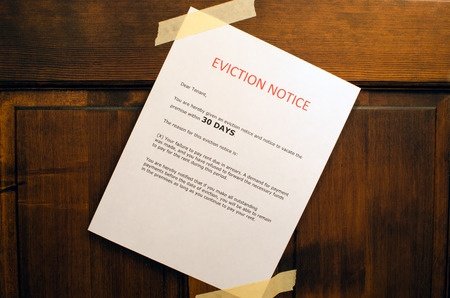Despite lease provisions, background checks, and other precautions landlords take to ensure quality tenants, you may find yourself needing to evict a tenant. The first thing you should know is  that this is not as simple as it sounds. There are certain legal protections given to tenants.
that this is not as simple as it sounds. There are certain legal protections given to tenants.
If you are thinking of evicting a tenant, we advise contacting an NYC tenant-landlord attorney before you take any action to ensure you’re following all the steps necessary and doing things right. The more you respect and comply with the law, the higher the likelihood you have of successfully evicting the tenant.
Don’t be surprised or frustrated by the legal process involved in evictions. Read our guide below of things to avoid when evicting a tenant.
Actions and activities to avoid when evicting a Tenant
In order to safely and legally remove a tenant from your property, make sure you DON’T do the following:
1. Evict a tenant without going to court. Since 1984, NY has required landlords to attend court to evict a tenant. The eviction action is called a Summary Proceeding, which is used to help the landlord evict the tenant quickly, while still ensuring the tenant’s rights are protected. You must go to court, win the case, and secure a “Warrant of Eviction” to evict a tenant, even if you are owed rent or the lease has ended. Any tenant who has been renting the unit for more than 30 days cannot be evicted without going to court.
2. Make changes or take action on your own. “Self-help” remedies are illegal. It is a criminal violation, under the New York City Administrative Code §26-521, for an NYC landlord to take any of the following actions:
-Changing the locks
-Padlocking the doors
-Removing furniture or property
-Removing the doors of the rental unit
-Turning off the electricity or water
-Doing anything else that keeps the tenant out of the unit
3. Serve the tenant yourself. The Summary Proceeding starts when the tenant is served with two papers: the “Notice of Petition” and the “Petition”. You must have your attorney or a process server actually serve the papers to the tenant; you cannot do it yourself.
4. Ignore timing requirements. Tenants must be served the papers within a certain timeframe. They must receive both papers at least 5 days before the court date. The court date must also be no more than 12 days after the papers have been served. If you win your case, you must give the tenant 7 days to move out, with the notice to vacate generally served by an NYC Marshal.
5. Skip steps. Before starting Summary Proceedings, especially in cases of non-payment of rent, you must ask the tenant for rent owed preferably in writing. This helps prove to the court that you have tried all reasonable means to obtain payment. Document everything and bring this proof with you to court.
6. Proceed without having a case. Before starting eviction proceedings make sure you have a case. Tenants with written leases can only be evicted if:
-The lease is up
-They owe rent
-They have seriously violated the terms of the lease.
For Month-to-Month leases or non-written leases, tenants can only be evicted if:
-They owe rent
-They were given 1 month’s notice to vacate the property.
Landlords must be able to prove in court that there are grounds for eviction so it’s in your best interest to make sure you have a strong case before taking any eviction measures. Have proof of non-payment or lease violations to prove your case.
7. Disrespect the court. If you secure a court date, make the most of it. Be on time, or early. You never know when a case will be called and even if you are a few minutes late the case could have already been decided. Be respectful of the court’s time and show courtesy to the judge. Bring all of your proof to court with you in case the judge asks to see it.
8. Toss the tenants’ private property. The tenant has 7 days within which to vacate the property. If, after this time, the tenant’s possessions and private property are still in the unit, you have a right to remove it, but you cannot dispose of it. You must store it somewhere safe for at least thirty days and must return it to the tenant when asked, even if the tenant still owes you rent. If 30 days have passed and the tenant has not claimed his or her possessions, talk to your attorney to discuss your options. You will likely have to provide the tenant with written notice of your intentions before you can take any action.
9. Represent yourself in court. While landlords can represent themselves in court, it’s almost always in your best interests to hire a landlord-tenant attorney to represent you. Summary Proceedings are legal remedies that require strict compliance with the law and legal procedures. Any mistakes or missteps can derail your case, leading to wasted time and money and a tenant you don’t want in your building.
Contact Brasch Legal for advice and assistance on evicting a Tenant
If a tenant is causing you trouble and you want to learn your options or start an eviction, contact Brash Legal. Justin Brasch is an experienced landlord-tenant attorney who will be able to advise and represent you in court.
To discuss your particular situation, please call the team at Brasch Legal today at 212-267-2500 or use our contact form.





